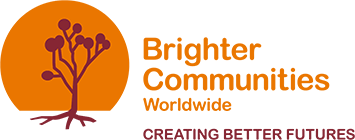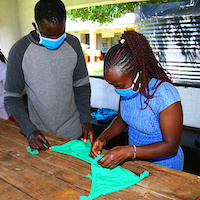Taking action on diabetes on World Health Day 2016
The World Health Organisation (WHO) is marking its annual World Health Day on 7 April 2016.
The day celebrates the founding of WHO in 1948 by raising awareness of global health issues, and this year it is calling for action on diabetes. In its first Global report on diabetes, WHO highlights the need to step up prevention and treatment of the disease.
Diabetes in Africa
According to WHO, in 2012 diabetes was the direct cause of around 1.5 million deaths, with more than 80% of those occurring in low- and middle-income countries. WHO projects that diabetes will be the seventh leading cause of death by 2030. In the African Region, the rate of diabetes is growing and this represents a big challenge to governments, health services, communities and individuals. Diabetes can lead to high rates of ill health, disability and premature deaths. It has severe health complications such as blindness, kidney failure, neuropathy, disability and premature death. It also has serious economic and community consequences which include loss of productivity, income and a lack of understanding of how to prevent and treat it.
Some important facts about diabetes
1. A large proportion of diabetes cases are preventable. Simple lifestyle measures have been shown to be effective in preventing or delaying the onset of type 2 diabetes. Maintaining normal body weight, engaging in regular physical activity, and eating a healthy diet can reduce the risk of diabetes.
2. Diabetes is treatable. Diabetes can be controlled and managed to prevent complications. Increasing access to diagnosis, self-management education and affordable treatment are vital components of the response.
3. Efforts to prevent and treat diabetes will be important to achieve the global Sustainable Development Goal 3 target of ‘reducing premature mortality from non-communicable diseases (NCDs) by one-third by 2030’.
Teaching nutrition to prevent and manage diabetes
Friends of Londiani is working with communities in Kenya to raise awareness of diabetes. Our Lifeskills programme now includes a module on nutrition, at the request of the community themselves. This part of the course teaches an understanding of how diet and food choices can affect our health. The work we do to support rural health clinics also ensures that patients can get treatment when they need it.
Find out more about Lifeskills and health programmes here >>
Take part in World Health Day on social media, more information is on the WHO website here>>

